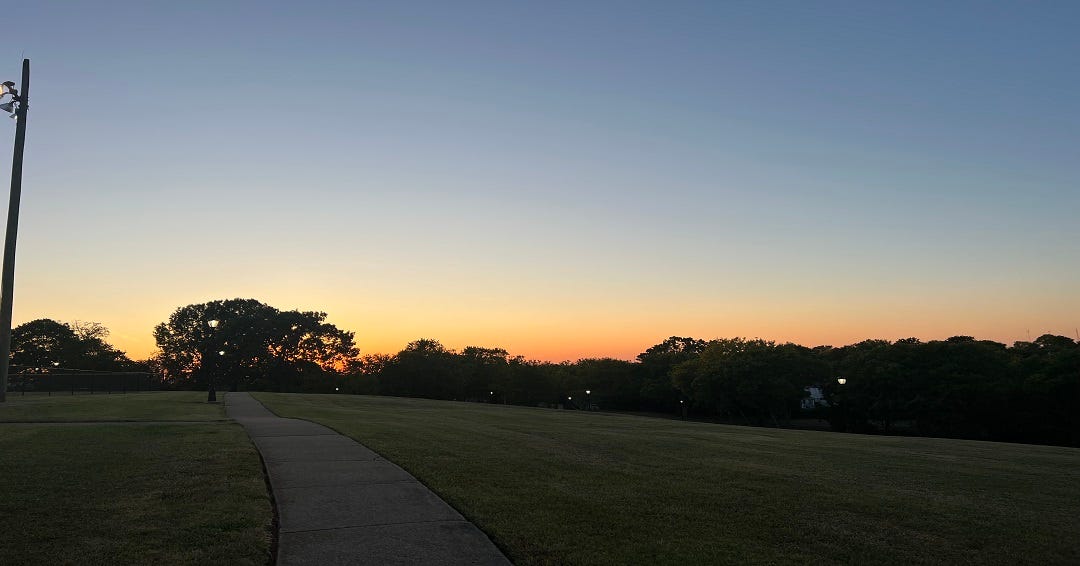Welcome! This bi-weekly email newsletter is a place where women spanning all ages share their sense of identity and their awareness of our world through personal narrative. Stories shared here come from writers across many generations, cultures, locations, and ethnicities.
It’s TLC Wednesday!
More days than not we find news about AI and advanced technology encroaching into many aspects of daily life—current events, our work and how it impacts other parts of our life—along with myriad other related topics. Gratefully, we have this TLC space of writers with varying backgrounds and interests. I was thankful that one of our new writers, Isabella Arbelaez, knows a great deal about AI and considers the issues around it daily due to the nature of her work. A deep thinker, I appreciate Isabella’s careful approach to a topic that has very much escaped the genie’s bottle and will only become more a way of our lives. I’m certain you will appreciate her wisdom here as much as I did. —Molly
It has been one year since OpenAI released ChatGPT-3, and the word, “GenAI” became part of our everyday vocabulary. As someone currently working in this space, trying to bridge the gap between technology, education and impact, I am grappling with big questions surrounding Generative AI and its implications for education.
Outside of work, I am grappling with feelings of both fear and excitement in the face of these new tools.
Questions abound:
What does GenAI mean for students?
How can we get students to learn with it, not depend on it?
How can we support educators to learn about it and then teach it?
How will GenAI impact our colleges, our office spaces, our futures?
The truth is these questions’ answers are as evolving as the technology itself.

Generative Artificial Intelligence (GenAI) is a branch of artificial intelligence that involves teaching machines to understand patterns in existing, large amounts of data and then create new and original information.
Some examples of GenAI-powered machines you may be familiar with include ChatGPT, Google’s Bard, and Microsoft’s Bing. All of these are AI-enabled chatbots, developed to leverage GenAI to predict the next word you are thinking of or the next topic you are looking for.
Since its launch, GenAI has raised significant questions, concerns, as well as opportunities. Working in the education space, I have seen college campuses grappling with the integrity of take home assignments, educators struggling to concurrently learn and teach with this new tool, and students confronting questions of ethics and bias with chatbots’ outputs, as they learn what “ethics” and “bias” are.
“We are active participants in this decision.”
NYT’s The Daily released a pretty fear-inducing episode this past June on the dangers of cheating with GenAI, interviewing students and professors on their use and detection of GenAI. I won’t deny it; the considerable risk of cheating and the loss of academic integrity is real, as well as the sharing and distribution of personally identifiable information. I do not want to mitigate the need for guidelines, policies, and principles around responsible AI use, and fast.
However, I believe apprehension and excitement can coexist. Regulation and opportunity can share the stage. If fear of what could happen with AI stops us from learning about it, exploring it, using it, well, that sounds like more of a risk to me.
Khan Academy CEO and founder, Sal Khan, put it best when he said, “We are active participants in this decision… If we act with fear and if we say, ‘Hey, we’ve just got to stop doing this stuff,’ what’s really going to happen is the rule followers might pause, might slow down, but the rule breakers… they are only going to accelerate. And that leads to… the dystopian state which is the good actors have worse AIs than the bad actors.”

So, where does this leave us? As much as I wish I could foresee the future of AI, the technology is moving at a much faster rate than anyone has anticipated. We do not have to become prompt engineers overnight, though for $400k per year, it is a tempting offering. Instead, I would encourage us to become 5-min, daily users.
Start learning about GenAI. Here are a few great reads/listens to get started:
The Age of AI has Begun (GatesNotes)
No, AI Won’t Destroy Education. But We Should Be Skeptical (EdWeek)
Start experimenting with ChatGPT, Bard, or Bing. Ask it to summarize an article in the news, to plan out a dinner with friends, or create a 3-day travel itinerary to Nashville. Then give the chatbot feedback. The cool thing about ChatGPT is it responds and refines its answers the more you direct it. Don’t be afraid to be its debate partner or question clarifier.
Whether you hate ChatGPT or love it, I encourage you not to be afraid of it. Right now, ChatGPT feels like the monster in the closet. Until we are willing to open the door and discover what is there, we will not to be able to calm our worries, and further, realize GenAI’s potential.
Isabella’s 5 Favorite Things
Honeybear Cold Brew from Elegy: Living in Nashville, and dangerously close to Elegy, this small coffee counter packs some big flavor. I recommend it for anyone living in the area and/or visiting.
My standing desk: For $40 on Facebook Marketplace, it is one of the best investments I have made for working from home.
Talk Fast, Think Smart Podcast: Whether in work or in my professional life, I have found myself applying Matt Abraham's tips for effective communication every day in my writing, speaking, and listening. I found this podcast in January 2023 and I haven't stopped listening. (Tip: he is coming out with a book soon!)
Libby: Traveling a lot this past year for work and for fun, I keep my Kindle close. Libby is an app that allows you to download library books straight to your Kindle and keep them for 2 weeks. Game changer and money saver!
Shelby Farms Park: The perfect spot for a long Saturday morning walk/run in my hometown of Memphis.
With gratitude,
Isabella Arbelaez
P.S. For another intentional look at AI in everyday life, read Mallory’s letter: Reimagining the Future.





